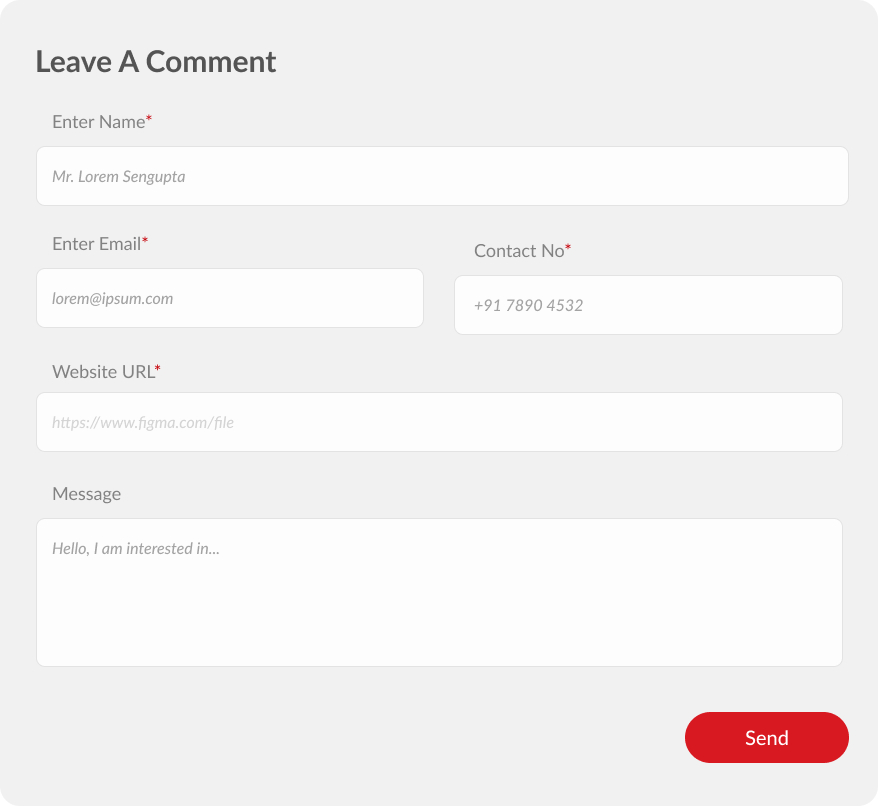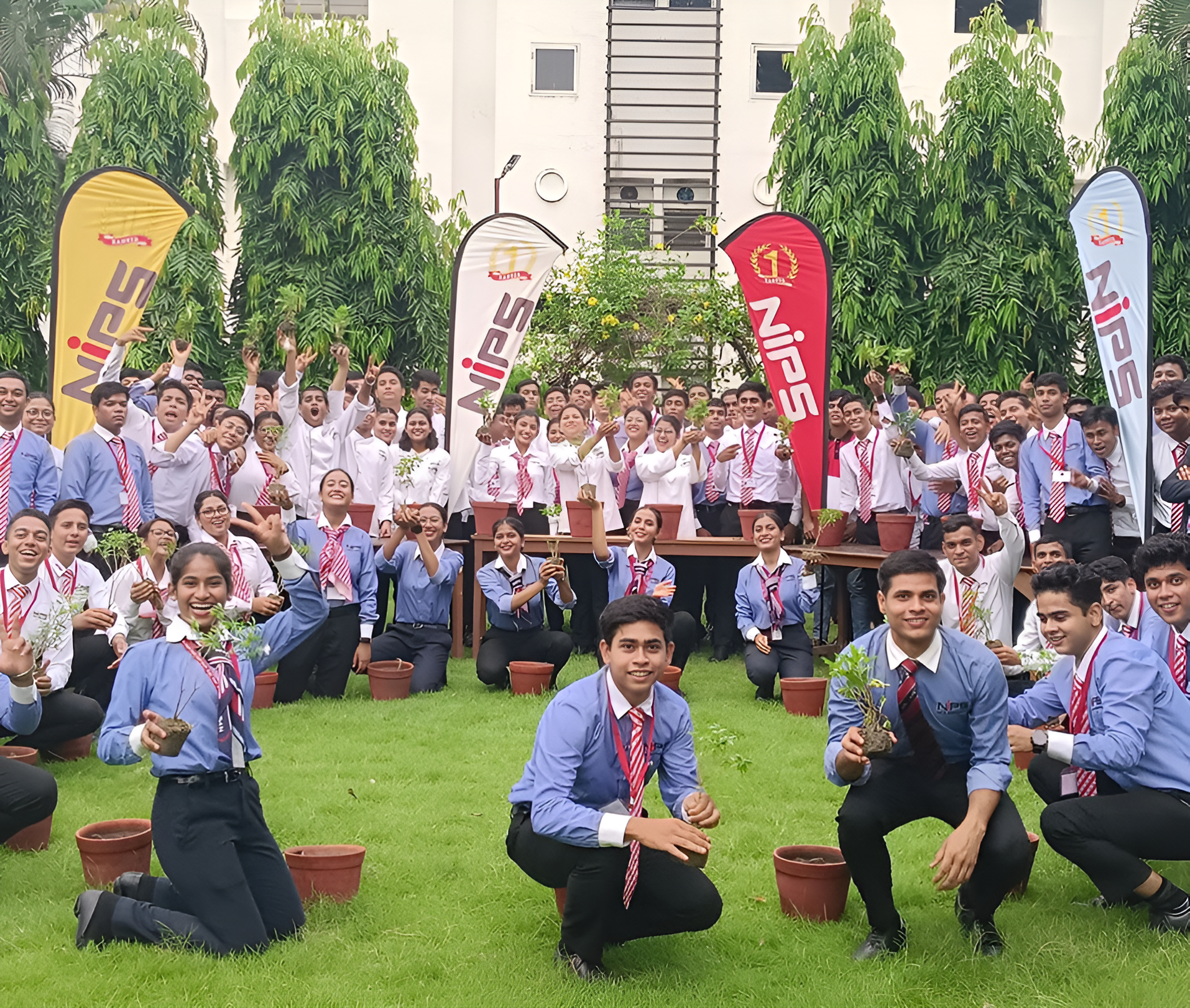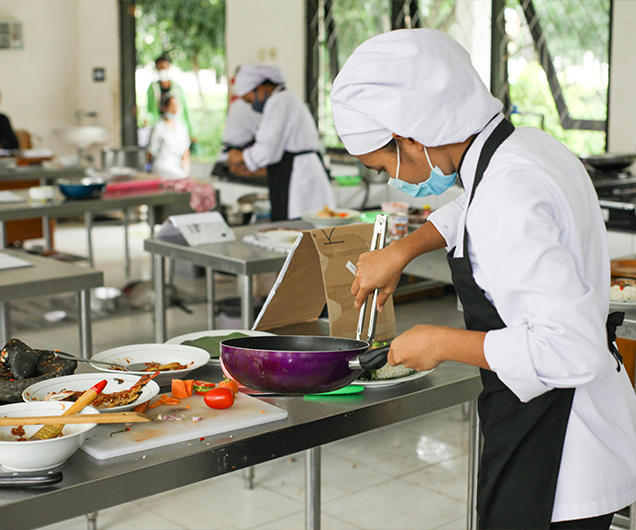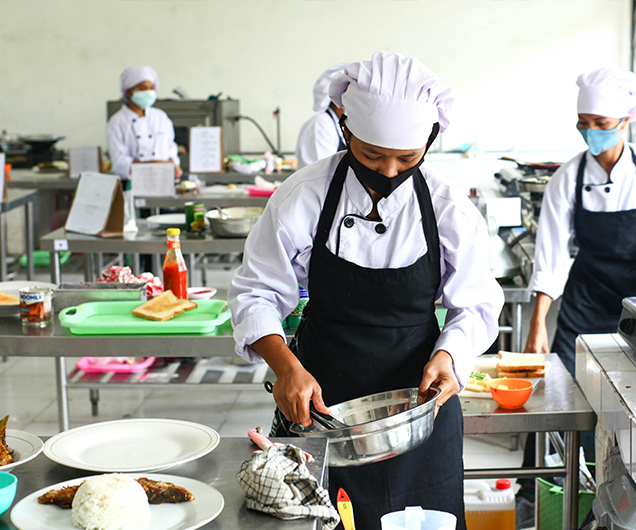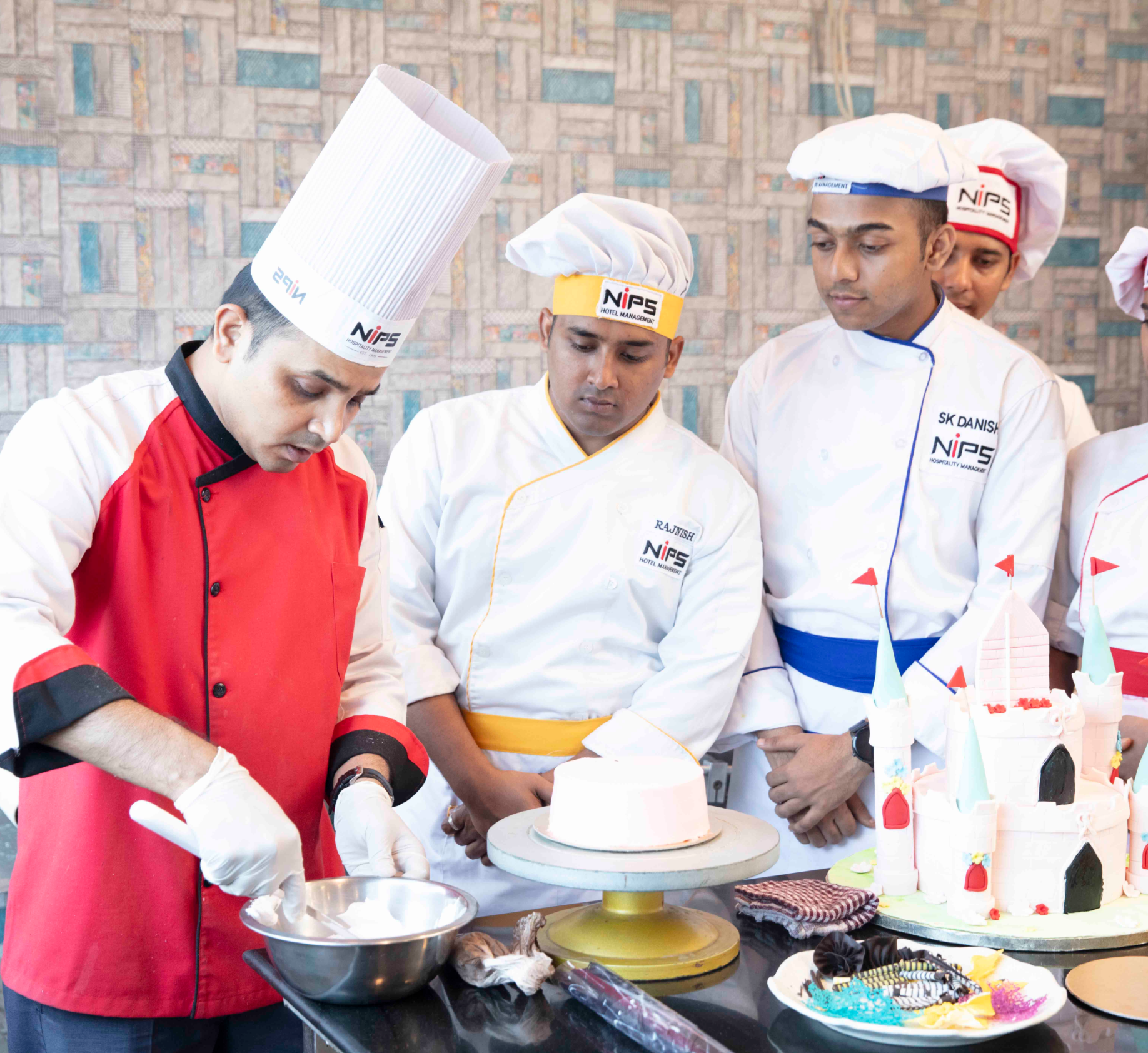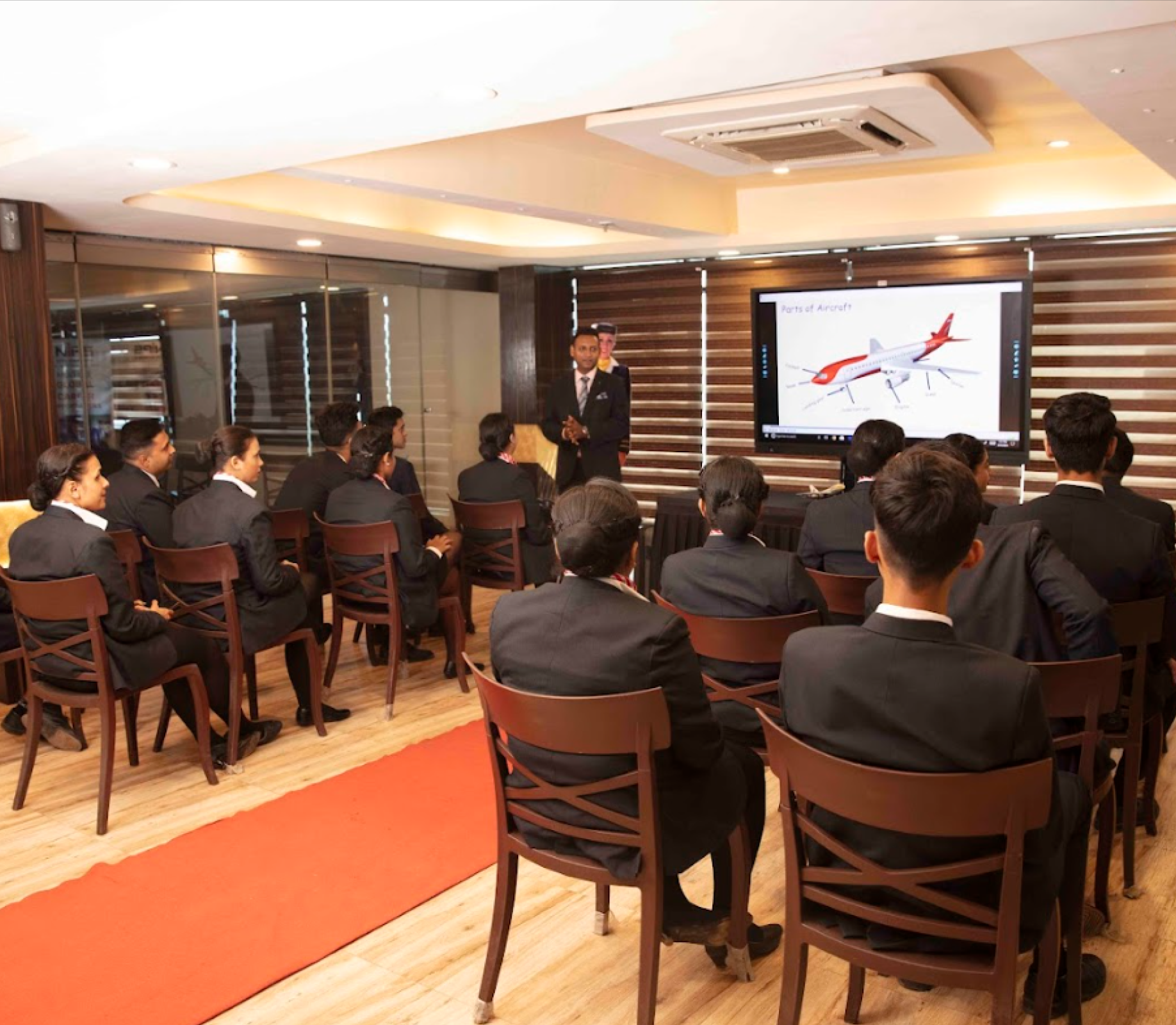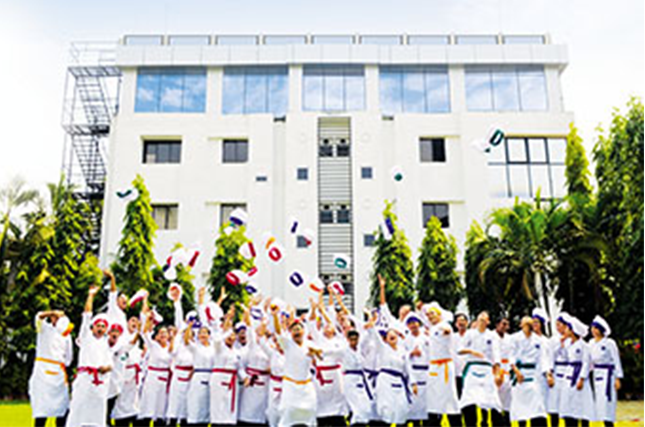
-
By:admin
-
Hotel Management
-

( 0 )
Building Your Professional Network: A Student’s Guide to Hospitality Connections
As an event management student, starting early to establish connections is key.
Even top institutes like NIPS Hotel Management Institute recognize networking’s practical value, preparing students to build a robust network through its comprehensive, multi-disciplinary courses and additional resources.
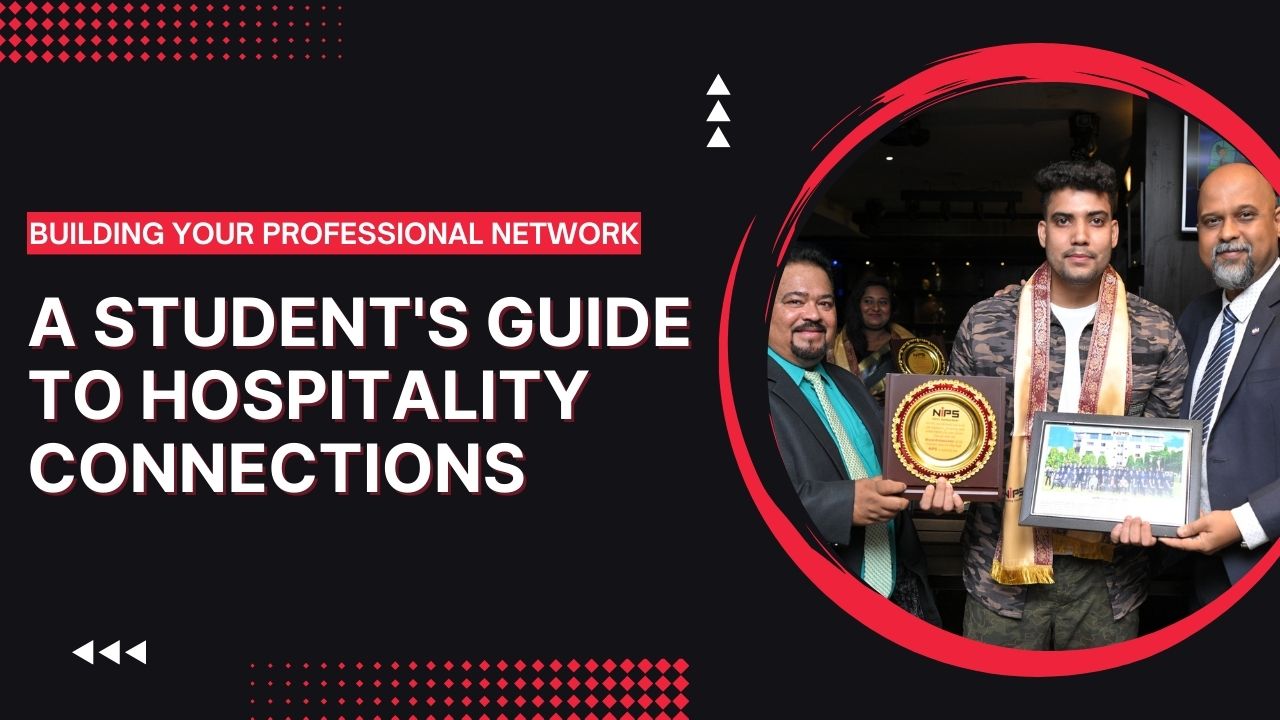
What else event management students can do to build more connections? Here are some tips:
Attend Industry Events
Attending industry events is a prime networking opportunity. These include conferences, trade expos, seminars, and workshops — venues to engage leaders while learning cutting-edge insights.
Come prepared by researching attendees and speakers. Approach them with genuine interest and thoughtful questions.
For example, after an engaging conference session, introduce yourself to the speaker. Share your perspectives on their discussion, and solicit their advice relevant to your budding career.
Join Professional Organizations
Joining professional groups connects you to like-minded peers and unlocks access to resources and happenings.
Many offer discounted student memberships, enhancing affordability. Membership can enrich your knowledge via webinars, publications, and networking meetups.
Actively engaging within these groups can catalyze mentorships and job prospects after graduation.
Leverage Social Media
Social platforms, especially LinkedIn, are powerful networking tools. Create an engaging profile spotlighting your education, experience, and career goals.
Connect with classmates, professors, professionals, and alums in the sector. Share relevant content, such as hospitality trend articles or your own event insights.
Join LinkedIn’s hospitality-focused groups to partake in discussions and expand your reach.
Posting takeaways from a hotel workshop could capture the attention of attendees and speakers.
Volunteer and Intern
Volunteering and interning furnish hands-on experience and opportunities to connect with veterans in real-world settings. These roles allow you to demonstrate your capabilities while learning from seasoned hospitality personnel.
Seek internships at esteemed hotels, resorts, or event companies.
Volunteering at high-profile functions can also prove advantageous by putting you in contact with planners, organizers, and hotel managers, potentially ushering future job prospects.
Seek Mentorship
Mentorship is an important aspect of professional networking. Industry veterans draw from extensive experience to provide guidance, encouragement, and insights.
Identify potential mentors through your connections or professional groups. Approach respectfully, conveying admiration for their career and seeking their advice.
Consistently update them on your progress and solicit feedback.
For instance, a mentor could help you weigh job offers or interpret industry trends, empowering more informed career decisions.
Engage in Continuous Learning
Continuous learning keeps you updated on sector developments and refines your capabilities.
Attend workshops, enroll in online courses, and join webinars. Understanding hospitality trends makes you a valued connection for sharing insider knowledge.
Discussing the latest sustainable practices with your network, for example, can aid meaningful conversations.
Final Thoughts
Building a hospitality network is an ongoing, dynamic process. Leading colleges like NIPS Hotel Management Institute integrate networking into their curriculums of diploma in hotel management in Kolkata, preparing you for an accomplished career.
Connections’ unmatched importance in hospitality cannot be overstated.
Choose an institute that values relationship building and provides platforms to establish and expand your professional community. As you cultivate your network, remember each link represents one step closer to a rewarding hospitality career.
